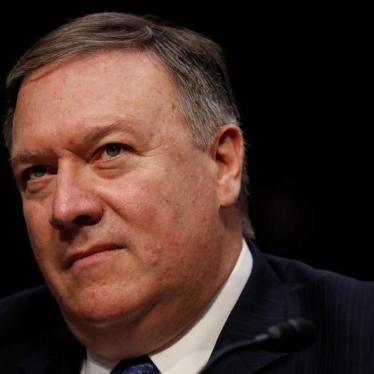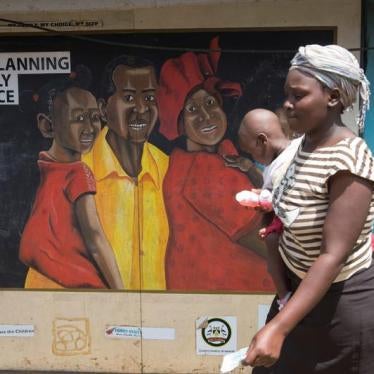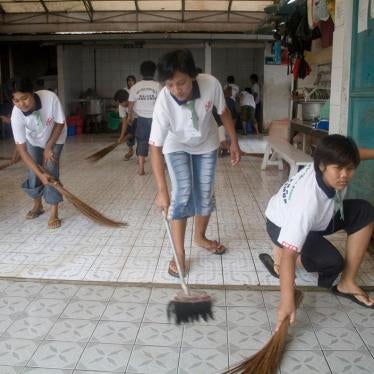Last week, Human Rights Watch joined 75 other organizations to support a new bill in the United States House of Representatives seeking to restore funding to the United Nations Population Fund (UNFPA), a key agency promoting women’s and girls’ human rights around the world. The Trump administration has repeatedly blocked funding to UNFPA despite Congress’ approval.
UNFPA is an important player in promoting women’s and girls’ human rights around the world. Operating in more than 150 countries, UNFPA work supports programs to end female genital mutilation and child marriage, aims to reduce preventable maternal deaths, and promotes voluntary family planning. The agency also supports sexual and reproductive health services in humanitarian emergencies and works to prevent and respond to gender-based violence. In many places, UNFPA provides critical support for the only reliable healthcare services available to women and girls.
Since 2017, the United States State Department has blocked money flowing to UNFPA, citing a provision in Congress’ funding bill designed to prohibit US foreign assistance to any organization the administration determines is involved in coercive abortion or involuntary sterilization. The Trump administration cites UNFPA’s presence in China as justification for triggering the provision, given US concerns over China’s restrictive reproductive health policies.
The US government has never thoroughly investigated or proven its allegations of complicity by UNFPA. In fact, in 2015, UNFPA’s executive board, which the US is a member of, approved its China program. Yet in 2017, the State Department asserted that: “while there is no evidence that UNFPA directly engages in coercive abortions or involuntary sterilizations in China, the agency continues to partner with the NHFPC [National Health and Family Planning Commission] on family planning, and thus can be found to support, or participate in the management of China’s coercive policies…”
UNFPA denies that it engages in any such abuses, pointing to its global principle of voluntarism and past public rebuttal of China’s one child policy to demonstrate it is working to promote reproductive rights within the system. But it is also true that the very nature of the NHFPC, which has been rolled into the National Health Commission, is to carry out an abusive policy, and the move to a two-child policy that fundamentally infringes on reproductive rights. All people have the right to decide the number and spacing of children in their family, and government policies that coercively force families to limit their number of children are fundamentally at odds with basic human rights standards.
UNFPA should be more public and unambiguous in China in defending its own approach to reproductive health care, which is fundamentally premised on voluntarism – that is, the individual right to make your own reproductive health choices. And UNFPA should not just defend its approach – it should work vigorously to advance it with Chinese authorities. Meanwhile, the US should not risk the health of women and girls around the world that rely on the live-saving work that UNFPA carries out daily.










